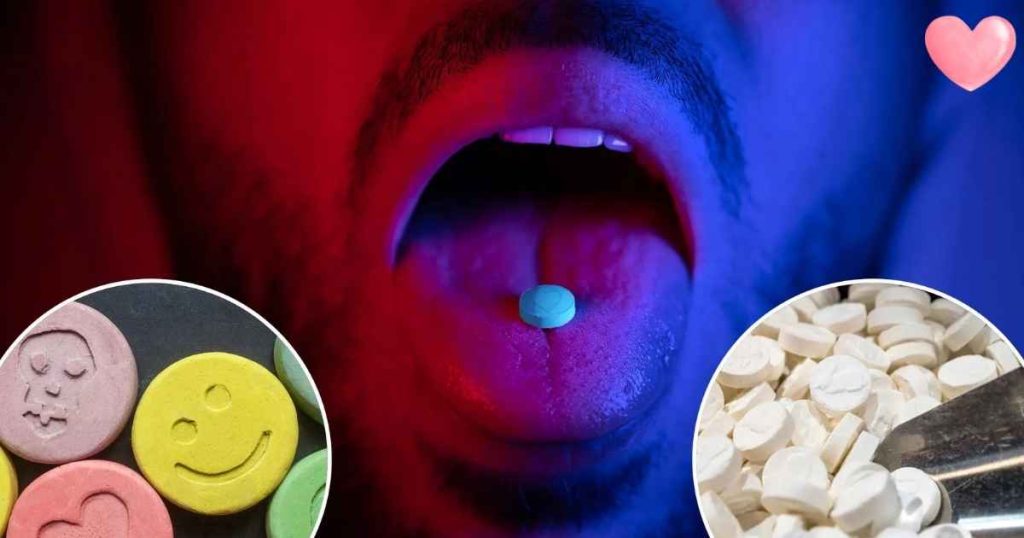In the realm of drug abuse, few stories are as jaw-dropping as that of the British man who consumed 40,000 ecstasy pills in his twenties. His case serves as a stark warning about the devastating effects of substance abuse and underscores the critical importance of prevention, caution, and seeking help. This article will explore his story, the physical and mental consequences he suffered, essential precautions, and effective strategies to overcome ecstasy addiction. If you or someone you know is struggling, understanding these aspects could be a life-saving step.
The Shocking Case: 40,000 Ecstasy Pills Consumed
During his twenties, a man—known in medical literature as “Mr. A”—ingested an estimated 40,000 tablets of ecstasy (MDMA) over nine years. At his peak, he was taking up to 25 pills a day. His drug use started recreationally, but quickly escalated into a severe addiction. According to case reports, his consumption was so extreme that it stands out even among the most severe cases of substance misuse ever documented.
His story came to light when he sought help at an addiction center, and his case was published by consultants at St George’s Medical School in London. The medical team sought to understand the long-term effects of such unprecedented ecstasy use, and the findings were both alarming and instructive for the medical and wider community alike (The Guardian).
The Devastating Physical and Mental Consequences
The repercussions of taking 40,000 ecstasy pills were severe and life-altering:
1. Cognitive and Memory Impairment
Mr. A suffered from extreme memory problems. He struggled to remember recent events, hold conversations, or recall basic details of his daily life. The brain damage was so significant that he required hospitalization in a brain-injury unit, where he was taught coping mechanisms to manage his memory loss (AOL).
2. Paranoia and Hallucinations
He experienced intense paranoia, believing people were plotting against him. He also suffered from frequent hallucinations, further detaching him from reality and making daily life extremely difficult.

3. Depression and Mood Disorders
Long-term ecstasy use severely disrupted his brain’s serotonin system, leading to chronic depression and mood swings. He found it hard to experience pleasure or motivation, symptoms commonly associated with serotonin depletion.
4. Physical Health Problems
The man endured persistent muscle pain, panic attacks, and episodes of flashbacks. His sleep was disrupted, and he suffered from a weakened immune system, making him more susceptible to illnesses.
5. Social and Occupational Dysfunction
Unable to maintain employment or relationships, Mr. A became increasingly isolated. His addiction led to estrangement from friends and family, compounding his mental health struggles and creating a vicious cycle of dependency and despair.
Despite stopping ecstasy use seven years before his case was published, many of these symptoms persisted, highlighting the long-lasting impact of heavy MDMA abuse (LADbible).
How to Avoid Ecstasy Addiction
1. Educate Yourself and Others
Understanding the risks associated with ecstasy and other recreational drugs is crucial. Awareness campaigns and honest conversations about drug use can deter experimentation and reduce peer pressure.
2. Recognize the Signs of Addiction
Early signs of ecstasy addiction include increased tolerance, cravings, withdrawal symptoms, and neglect of responsibilities. Recognizing these symptoms early can lead to timely intervention.
3. Set Boundaries and Practice Refusal Skills
If you find yourself in social situations where drugs are present, practice assertive refusal skills. Surround yourself with friends who respect your choices and encourage healthy behaviors.
4. Seek Healthy Alternatives
Engage in activities that provide natural highs, such as exercise, music, art, or volunteering. These activities can fulfill the need for excitement and connection without the risks associated with drug use.
5. Monitor Mental Health
Many turn to drugs to self-medicate for anxiety, depression, or trauma. If you’re struggling, seek professional help rather than turning to substances.
How to Break Free from Ecstasy Addiction
If you or someone you know is struggling with ecstasy addiction, know that recovery is possible. Here are effective steps to overcome this dangerous habit:
1. Acknowledge the Problem
The first step is admitting that there is a problem. Denial can be a major barrier to recovery, but acknowledging the issue opens the door to seeking help.
2. Seek Professional Help
Addiction is a medical condition that often requires professional intervention. Reach out to addiction specialists, counselors, or rehabilitation centers for assessment and treatment.
3. Detoxification and Medical Supervision
Quitting ecstasy can lead to withdrawal symptoms such as depression, fatigue, and sleep disturbances. Medical supervision ensures a safe detox process and addresses any complications.
4. Therapy and Counseling
Cognitive-behavioral therapy (CBT) and other evidence-based therapies can help address the psychological aspects of addiction, teach coping skills, and prevent relapse.
5. Support Groups
Joining support groups like Narcotics Anonymous (NA) provides a sense of community and accountability. Hearing from others who have overcome addiction can be inspiring and motivating.
6. Lifestyle Changes
Adopt a healthy lifestyle with regular exercise, balanced nutrition, and adequate sleep. These changes support brain recovery and overall well-being.
7. Build a Strong Support System
Lean on family, friends, and mentors who support your recovery journey. Social support is critical for long-term success.
8. Avoid Triggers
Identify and avoid people, places, or situations that may trigger cravings or tempt you to use again.
Learn from the Past, Protect Your Future
The tragic story of the man who took 40,000 ecstasy pills is a powerful reminder of the dangers of drug abuse. His long-term physical and mental health problems are a testament to the destructive potential of addiction. However, his case also serves as a call to action: with education, vigilance, and support, it is possible to prevent and overcome substance abuse.
If you or a loved one is struggling with ecstasy addiction, don’t wait. Seek help today, and take the first step toward a healthier, happier future. Remember, recovery is possible, and every journey begins with a single step.




















